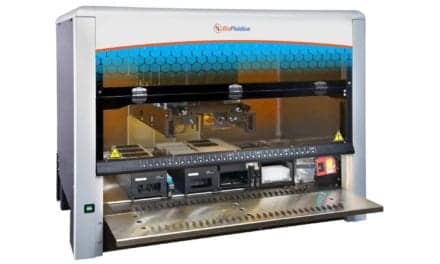Molecular diagnostics developer Elypta, Stockholm, Sweden, has selected a contract research organization in the Netherlands to manage a major study on diagnostics in renal cell carcinoma (RCC), which is the most common form of kidney cancer. Factory CRO, Bilthoven, the Netherlands, will oversee the study, called Aurorax-087A.
Funded by a Horizon 2020 grant from the European Union, Aurorax-087A will evaluate the utility of Elypta’s liquid biopsy platform for the early detection of recurrence in RCC patients after surgery.1 The first urology study of its kind, Aurorax-087A will involve 16 world-renowned hospitals across the EU and United States, under the direction of an equal number of high-profile and field-leading urologic surgeons, who will be acting as principal investigators. The study will initially enroll 140 patients.
Elypta is developing a novel liquid biopsy platform for easy and cost-effective early detection of cancer using blood- and urine-based metabolic glycosaminoglycan markers. Elypta’s platform comprises a diagnostic kit for the detection of glycosaminoglycan and Cloud-based machine-learning software to analyze test results. The platform can be used for a range of cancer diagnostic applications, but the current focus is RCC.
The study will be overseen by chief principal investigator Saeed Dabestani, MD, PhD, a specialist in urology and general surgery at Lund University, and senior associate of the guidelines panel for renal cell carcinoma at the European Association of Urology.
“In current practice, imaging is the gold standard to diagnose recurrence in the follow-up of kidney cancer patients after curative treatment for localized disease,” Dabestani says. “However, imaging usually doesn’t enable follow-up testing frequently enough due to its costs and the danger to patients in administering too many radiation dosages. This results in about 30% of recurrences being detected outside the regular follow-up visits. Usually when this happens, the patients are symptomatic and have a more advanced disease.”
A test that detects recurrent kidney cancer before any metastasis is visible by imaging will therefore be crucially important for the approximately 320,000 people who are diagnosed with a localized RCC annually worldwide, says Dabestani. “The more frequently you can follow up with the patient, the higher is the likelihood of catching an earlier recurrence,” he says. “And now we have the opportunity to investigate whether this test can be a novel tool for earlier detection of recurrence. With earlier detection of recurrence, our hope is that more patients can then receive a treatment that is either curative or prolongs their lives.”
Recruitment for the Aurorax-087A trial will begin during the first quarter of 2020 and will run for 2 years. Using data from the study, Elypta expects to validate the clinical performance of its platform and apply for FDA clearance of its kit and software for detecting RCC recurrence.
For more information, visit Elypta.
Reference
- Aurorax-087A: GAG scores for surveillance of recurrence in Leibovich points ≥5 nonmetastatic clear cell renal cell carcinoma (AUR87A) [online]. Washington, DC: National Library of Medicine, 2019. Available at: https://clinicaltrials.gov/ct2/show/NCT04006405. Accessed October 7, 2019.



